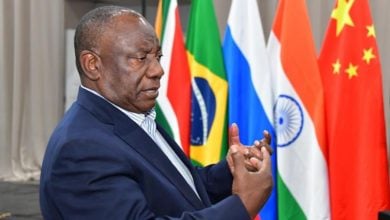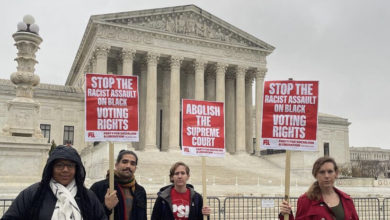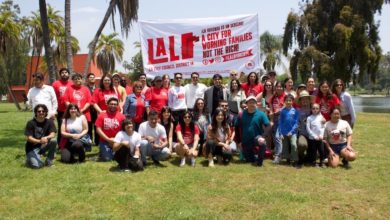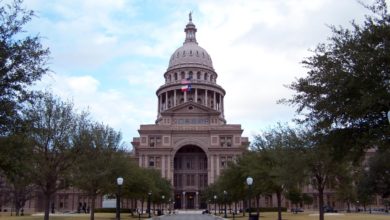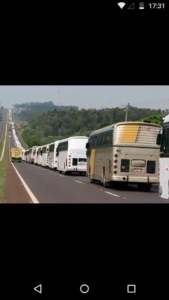
In August 2016, Brazilian President Dilma Rousseff and her Workers Party government were removed from office through a parliamentary coup d’etat carried out in the name of ‘fighting corruption.’ Since then, Brazil has suffered an intense rightwing backlash, with major attacks on social gains and even on the country’s own sovereignty. Now, with presidential elections scheduled for October, millions of Brazilians see former President Luiz Inácio Lula da Silva (Lula) as their only hope to reverse this process and bring back democracy. Lula, also a member of the Workers Party, served as president from 2003-11.
On Jan. 24, Lula was condemned for a second time when the Supreme Federal Court in Porto Alegre, denied Lula’s appeal and upheld his July 2017 conviction on corruption charges. At that time, federal Judge Sergio Moro not only convicted Lula without any evidence, but also refused to consider the evidence provided by Lula’s defense showing that the accusations against him were weak and the trial biased.
This twisting of justice into a legal attack against Lula has been called ‘lawfare’ by many judges in Brazil and around the world. Its purpose is to keep Lula from running for President.
Large protests show mass support for Lula
Brazilians knew that the Jan. 24 trial would not be fair, and expected another attack against Lula. It is widely felt that to defend Lula’s right to participate in this election is to defend Brazil’s democracy. All the left, even the parties who will be running their own candidates in this election, defend Lula’s right to run and denounce Sérgio Moro and judiciary system for unleashing this lawfare against Lula.
More than 70 local and international social organizations traveled from different parts of Brazil to Porto Alegre for the Jan. 24 appeal. Local committees were established to encourage public discussions about the case surrounding Lula and other political and social issues. Mass demonstrations affirming Lula’s innocence and the political nature of the charges took place before, during and after the court case. The Landless Rural Workers’ Movement (MST) blocked roads all over the country. People targeted with red paint the offices of O Globo, the media network seen as the ideological arm of the coup.
Lula sentence extended from 9 to 12 years
The three judges hearing the appeal spoke for hours, yet didn’t provide evidence against Lula. They not only agreed with Moro’s decision, but also extended Lula sentence from 9 to 12 years.
A day after the trial Lula’s passport was revoked by a judge not part of this case, a procedure which violates the law. Lula had planned to travel to Ethiopia to talk about his Hunger Zero program, which helped eradicate hunger in Brazil under his and Rousseff’s governments. African countries see Hunger Zero as a model they can try.
In 2014 the United Nationals removed Brazil from the World Food Program’s Hunger’s Map, which shows the prevalence of undernourishment in the world. Now, three years and a coup later, seven million Brazilians are living under extreme hunger conditions. This is what the coup is doing to the country. The last two years under righwing president Michel Temer have been marked by a strong social backlash, with the loss of workers’ rights, the dismantling of social programs and increasing unemployment.
Lula popularity growing
Lula plans further court actions contesting his conviction. In the interim, no one is sure yet if he will be allowed to remain at home or will be jailed. But what is sure is that the coup forces will try to stop his presidential campaign.
Why is it important for the coup mongers to stop Lula? Because if Lula runs as a candidate for the presidential elections in October this year, he will win. Lula left his second term as president with 85 percent approval. Never in world history has a president left their second term with this level of approval. Michel Temer, the coup president, has an approval rate today of 3 percent. He never reached a double-digit approval level his whole time in office.
Temer is a former U.S. intelligence informant. His ascendency as president after Dilma’s impeachment was a turn towards U.S. imperialism as well as neoliberalism. The U.S. helped normalize his government on the international arena right after the parliamentary coup made him president.
Polls show Lula’s popularity growing in scenarios projecting the first and the second rounds of elections, and indicate that he can even win in the first round. An overwhelming victory by Lula would mean the failure of the coup, and enable a new political cycle to begin. For the coup to have a future, for the current neoliberal policies to have a future, Lula can’t be part of the elections.
Lula refuses to end his presidential candidacy
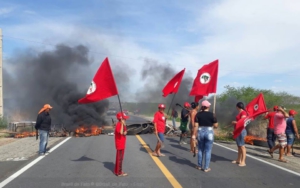
Lula and the Workers Party responded to the Porto Alegre court’s decision by saying that he will remain the Workers Party candidate. Brazil has a law called “Ficha Limpa” or ‘clean file.’ This law impedes politicians from running in elections if they have been charged with corruption or violate in other ways laws related to corrupt behavior. However, Lula is not prohibited from being a candidate right now. It is only when he officially registers as a candidate that the Supreme Electoral Court can judge whether he can run.
There is an August deadline for candidate registration. The strategy of the Workers Party is to hold out until the last minute to register Lula, while it continues his campaign. By the time the Electoral Court decides that Lula can’t run, Lula will have already campaigned for a full year. The people will be aware of him as a candidate, and if he can’t run, he will probably throw his support someone else that can run. This strategy worked in 2010 when Lula supported Dilma Rousseff. At that time, the elite thought they were done with the Workers Party, as they had jailed most of the people they thought the party would run for office after Lula’s second term. However, Dilma Rousseff was elected not once but twice.
The people continue to resist
The people of Brazil will continue to support Lula and to resist and organize against this coup. A main issue now is the pension ‘reform’ President Michel Temer is trying to pass, which attacks pensions. When Argentine President Mauracio Macri passed a similar law, hundreds of thousands of people protested in the streets of that country.
In Brazil the situation will be further aggravated by the full implementation of the labor reform. The reform left a progressive labor law in ruins, dismantling almost 80 years of regulations. The essence of this measure is to reduce protections for workers and leave them vulnerable to exploitation by multinational corporations.
Growing polarization
Last year Brazil had its largest ever general strike. Over 40 million people stopped work in the country. There is a call for another general strike to protest Temer’s pension reform. Social movements maintain a strong presence in Brazil’s streets.
The resistance has been persistent but the oppression is increasing as well. It is very important to call attention to the assassinations taking place, especially in the countryside against members of the Landless Rural Workers’ Movement (MST).
MST leaders frequently receive death threats. The night of Lula’s trial a young leader of the movement, Márcio Oliveira Matos (33 years old), was killed in his tent at one of the movements’ land occupation in the state of Bahia. In May of 2017, 10 militants of the movement were murdered in the area of Pau D’Arco, at Santa Lúcia farm in Pará. The massacre was considered the largest one since Eldorado dos Carajás, in 1996, when 19 militants from the MST were killed by the police.
Still in 2017, another militant was killed inside of a hospital in the city of Parauapebas, also in Pará. At the time, armed men entered the hospital and killed Waldomiro Costa Pereira. Waldomiro was one of the survivors of the Eldorado dos Carajás massacre.
The total deaths caused by land conflicts in Brazil in 2017 was 65. The number in 2016 was the highest since 2003, and it has been increasing. These numbers show another face of this coup — that it is trying to consolidate itself.


